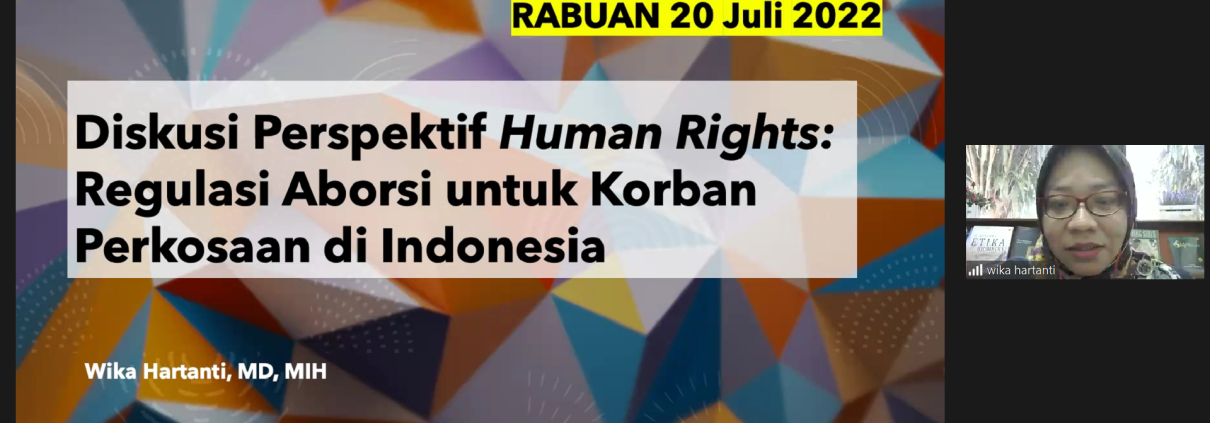Human Rights Perspective on Abortion for Rape Victim [Raboan Discussion Forum]
Center for Bioethics and Medical Humanities just held the Raboan Discussion Forum on Wdnesday (20/06). On that occasion, the title raised was Human Rights Perspective on Abortion for Rape Victims. The material was presented by the speaker: dr. Wika Hartanti MIH. Meanwhile, the moderator is dr. Tia Khatija.
Framing the problem: rape victim were criminalized for conducting an unsafe abortion, and rape victim was denied access to legal abortion. Expert group meeting report 2020, stated that rape is a systematic violation of human rights which is very sad and very serious, because often many cases are not processed and not resolved, and victims do not get their rights as victims. So it is hoped that there will be a better system of regulation in the handling of rape victims and that the victims get their rights.
There are cases of minors who are victims of rape. In these 2 cases, one of the victims (15 years old) had an abortion with her mother when she was 6 months pregnant, while the second victim (12 years old) applied for an abortion, but was rejected by the police and the court because she was already 2 months pregnant. The obstacle that is always faced by victims is proof that they are victims.
HR recommendation on abortion in Indonesia from SR on Health (UN GA 2018):
• Respect, protect and fulfill the right to health of women and girls by removing barriers to their sexual and reproductive rights
• Ending the criminalization of abortion and ensuring access to abortion services
• Providing sexual and reproductive health information, service, and goods, particularly comprehensive age-sensitive and inclusive sexual education in secondary schools.
The state’s obligation to provide access to safe abortion must consider the complex nature of rape cases, and regulation must be oriented towards facilitating, and not hindering, the safety and well-being of rape victims. Further studies and discussions/dialogues are critical to foster a better understanding of our society’s context, perspective, and needs, which can inform the policy and regulation of reproductive health services in Indonesia.




Leave a Reply
Want to join the discussion?Feel free to contribute!